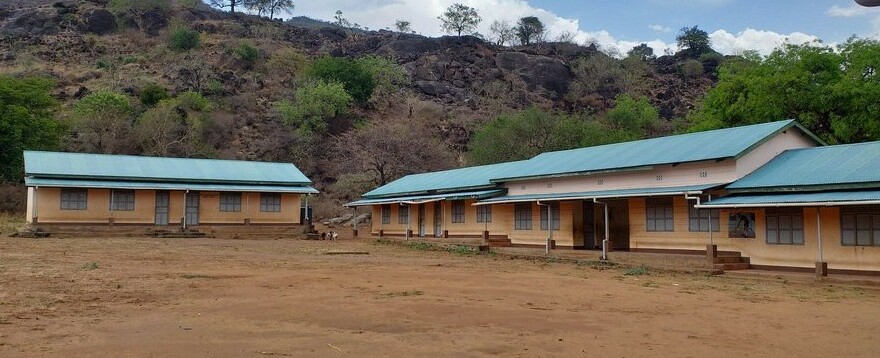Authorities in Lafon County, situated in South Sudan’s Eastern Equatoria State, have voiced their deep concern regarding the acute shortage of qualified teachers within the area.
A senior county official said that a significant number of schools in the area are currently operated by volunteer educators, which he said is negatively impacting the overall quality of education.
On October 9th, the Eastern Equatoria State Ministry of Education made the decision to close down the Teacher Training Center in Lafon-Imehejek due to reported security concerns within the area. As a result, sixty student teachers were compelled to relocate to Torit Technical School to continue their teacher training.
Owiri Angelo, Education Director for Lafon County, expressed his concerns during an interview with Radio Tamazuj, stating, “There are no qualified teachers in the area as many have left teaching in pursuit of better opportunities.”
He earnestly appealed to the state government, emphasizing the need to deploy qualified teachers and enhance their salaries to make the teaching profession more attractive.
Owiri elaborated on these challenges, saying, “These issues span from the physical condition of our classrooms to the quality of our teaching staff. We firmly believe that qualified teachers are pivotal in delivering a high-quality education to our students. This is what we have observed. If we can rectify this situation, we can anticipate positive changes in our education system. We require qualified teachers who can guide our learners effectively in the classrooms. Unfortunately, qualified teachers are increasingly scarce, as many have abandoned the teaching profession.”
“Many teachers have sought opportunities elsewhere, particularly in pursuit of better-paying jobs. To entice them back, we must enhance the compensation for both our current and prospective educators. Currently, the majority of our teaching staff consists of volunteers,” he added, underscoring the critical need to improve salaries to attract and retain qualified teachers.
Bakhita Itwari, a female teacher at Imehejek Primary School, candidly acknowledged that a substantial number of teachers in the area lack formal teacher training. She passionately implored the government to take action by both supporting and hiring trained teachers to elevate the quality of education. Furthermore, she extended a heartfelt plea to parents, urging them to send their daughters to school instead of keeping them at home.
Elaborating on the educational challenges faced by the county, Itwari emphasized, “Many of our teachers lack proper training, and some lack the motivation for teaching. Additionally, there are volunteers who have completed only up to senior four and are contributing for shorter durations. If we can introduce trained teachers with higher qualifications, such as graduates, this would significantly enhance the learning experience for school-going children.”
Itwari also shared her insights on what both the county and state governments can do to address the issues of recruiting qualified teachers and promoting girls’ education, stating, “The government should actively support the deployment of well-qualified teachers capable of effectively managing schools. I want to convey a message to mothers that they should ensure their daughters have access to education by sending them to school.”
Peter Agany Ogodii, a teacher at Lafon Primary School, highlighted a prevalent issue in the area: the departure of qualified teachers from the profession due to inadequate incentives and low salaries.
He emphasized the importance of addressing this challenge, stating, “We are facing a shortage of government teachers, and a majority of educators are volunteers without formal training. It’s imperative that teachers receive proper training, and beyond that, the government must prioritize their well-being to prevent them from leaving the teaching profession. Investment in teacher training is a matter that the government should take very seriously.”
Sammy Lopeyok Aperengole, the Minister of Education for Eastern Equatoria State, acknowledged that the shortage of qualified teachers is a widespread issue across the country. He emphasized, however, that the state government has taken steps to identify teachers for training and employment but is grappling with a financial constraint to support their training.
In his words, “The shortage of qualified teachers is not exclusive to Lafon County or even Eastern Equatoria State. While we do have qualified teachers, their numbers are insufficient. Therefore, we must continue training teachers who can be deployed to schools across the state. It’s crucial that the training and deployment of qualified teachers align with the budget to ensure that these teachers can be compensated appropriately.”
Minister Sammy Lopeyok went on to mention that a substantial number of volunteer teachers have been screened for potential training, stating, “Once we finalize the list, these teachers will be placed in schools facing a shortage of qualified educators.”




